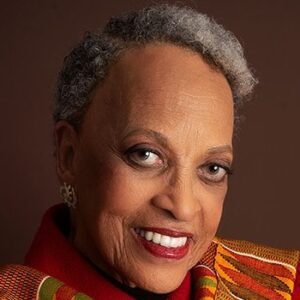 Johnnetta Betsch Cole, former president of two historically Black women’s colleges, has been appointed president-in-residence and co-chairperson of the United Negro College Fund’s capital campaign. In this role, Dr. Cole will aim to secure resources such as scholarships, support services, and new programs for member institutions of the United Negro College Fund.
Johnnetta Betsch Cole, former president of two historically Black women’s colleges, has been appointed president-in-residence and co-chairperson of the United Negro College Fund’s capital campaign. In this role, Dr. Cole will aim to secure resources such as scholarships, support services, and new programs for member institutions of the United Negro College Fund.
“With her immense expertise and passion for education, Dr. Cole will play a pivotal role in advancing the goals of our capital campaign and UNCF’s mission of ensuring equal access to higher education for underrepresented students of color,” said Dr. Michael L. Lomax, president and chief executive officer of the United Negro College Fund.
Dr. Cole has an extensive background in higher education, with experience in both administrative and faculty leadership positions. Early into her academic career, Dr. Cole served as a professor of anthropology at Washington State University, the University of Massachusetts Amherst, and Hunter College in New York where she also served as director of the Latin American and Caribbean Studies program.
In 1987, Dr. Cole became the first Black woman president of Spelman College, a historically Black women’s college in Atlanta, Georgia. During her presidency, Spelman College received a $37 million grant from the DeWitt Wallace/Readers Digest Fund, which at the time was the largest gift given to any historically Black college or university. She also led a campaign which raised $113 million for the college’s endowment. She left Spelman College after 10 years to teach at Emory University in Atlanta as the Presidential Distinguished Professor of Anthropology, Women’s Studies, and African-American Studies. From 2002 to 2007, Dr. Cole served as president of Bennett College, a historically Black women’s college in North Carolina, where she oversaw a $50 million fundraising campaign. In 2009, she was named director of the Smithsonian Institute’s National Museum of African Art.
Dr. Cole has served on numerous board of directors for charitable funds, educational institutes, and private-sector businesses. She was the first woman elected to serve on the board of Coca-Cola Enterprises and the first African American chair of the board for the United Way of America. She also served as chair and president of the National Council of Negro Women.
Throughout her career, Dr. Cole has received many awards for her academic contributions and scholarly achievements, including the 2023 National Humanities Medal presented by President Joe Biden. She has edited and authored several book including Conversations: Straight Talk with America’s Sister President (Doubleday, 1994).
Dr. Cole is a graduate of Oberlin College in Ohio where she received a bachelor’s degree in sociology. She holds a master’s degree and Ph.D. in anthropology from Northwestern University in Illinois.

